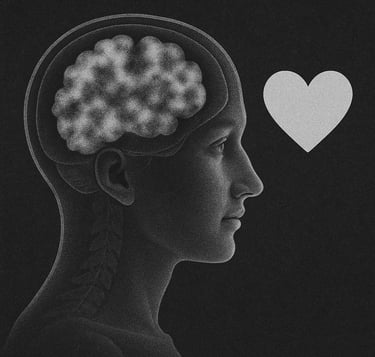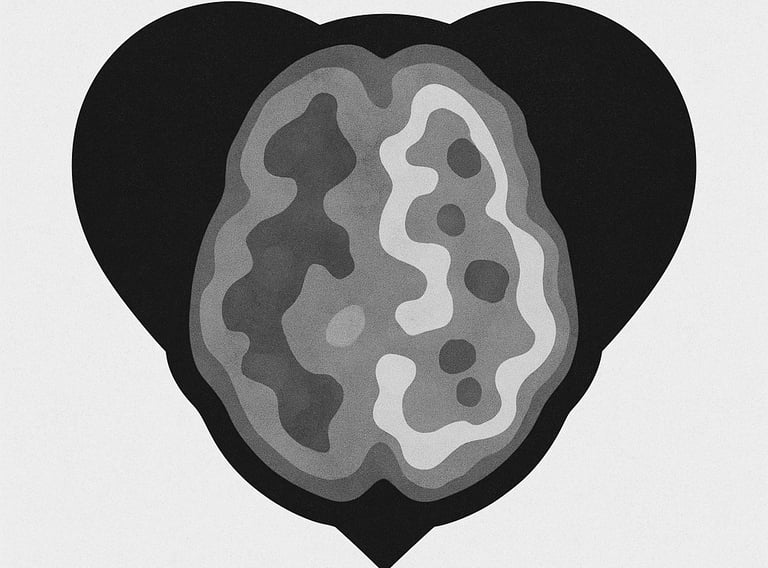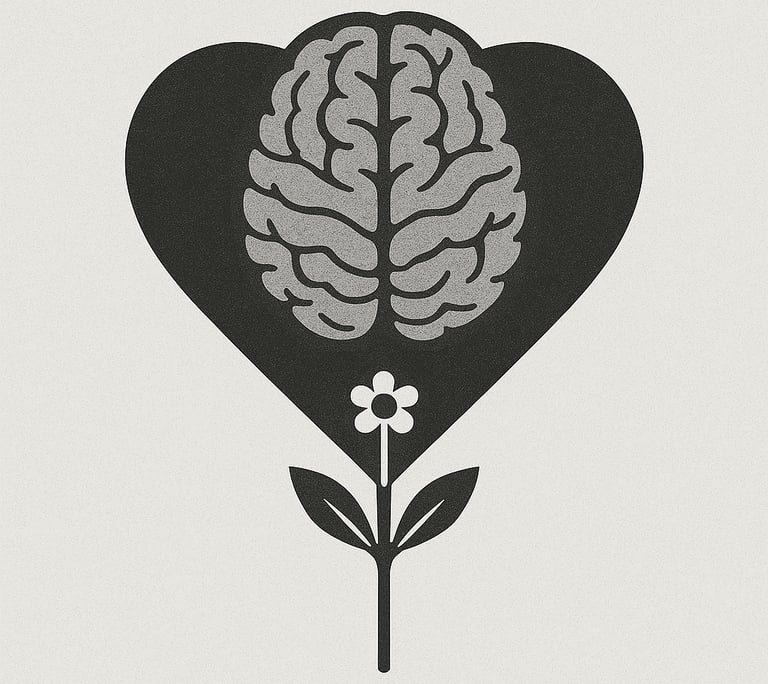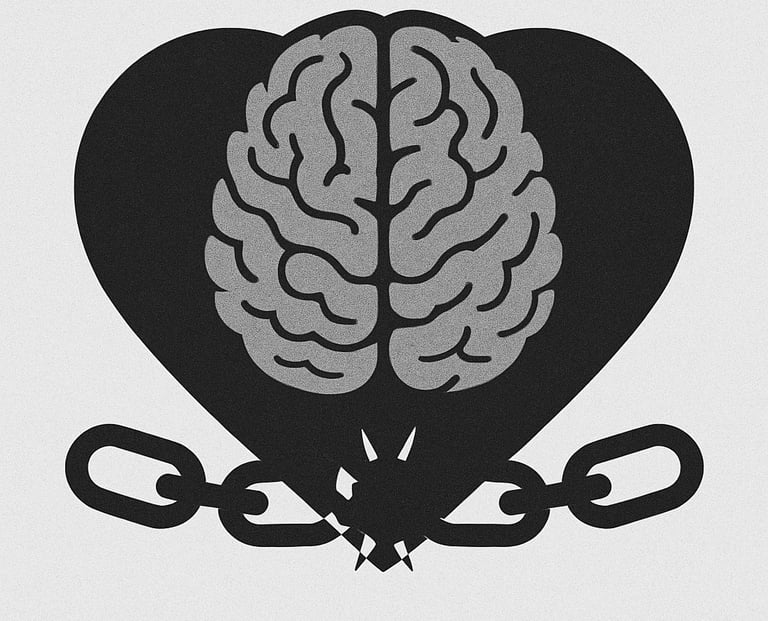The Brain in Love: What SPECT Scans Reveal About How We Love
We talk about love like it lives in the heart — but anyone who’s ever fallen for the wrong person (twice) or pushed someone good away for no clear reason knows… it’s deeper than that. Love lives in patterns. In stories we learned before we could talk. In nervous systems shaped by safety or threat. And yes, love lives in the brain. Thanks to something called a SPECT scan — a type of brain imaging — we now have the incredible ability to see how our brains behave when it comes to relationships. Spoiler alert: it’s not about IQ or how many self-help books you’ve read. It’s about blood flow, chemistry, and the little survival systems your brain has built over time to protect you — even when they sabotage connection. Let’s take a look inside, shall we?
5/8/20243 min read


What Is a SPECT Scan, and Why Does It Matter in Love?
A SPECT (Single Photon Emission Computed Tomography) scan shows how blood flows through your brain. Think of it as a heat map of your emotions. Where MRIs show structure (what your brain looks like), SPECT scans show function (how your brain works).
Psychiatrist Dr. Daniel Amen — known for popularizing the use of SPECT in mental health — has used this technology to study the brains of thousands of people, including those navigating love, heartbreak, and toxic patterns.
What he found is profound:
The way we love, attach, react, and retreat in relationships often mirrors the patterns in our brains.
Brain Patterns That Shape the Way We Love
Here are a few of the most common patterns seen in SPECT scans — and how they can affect your love life:
1. Overactive Limbic System
The limbic system is the emotional center of the brain. When it’s overactive, you may experience intense emotions, sadness, or rumination.
In love: You may fall hard and fast, struggle to let go after breakups, or replay past hurts on a loop.
2. Underactive Prefrontal Cortex
This part of your brain is responsible for impulse control and decision-making. When it’s underactive, you might act before thinking.
In love: You may say things you don’t mean, make impulsive decisions, or find it hard to stick to boundaries.
3. Overactive Basal Ganglia
Linked to anxiety and fear responses.
In love: You might feel clingy, fearful of abandonment, or hypersensitive to your partner’s moods.
4. Balanced Brain Activity
This doesn’t mean “perfect” — it just means regulated. Emotions rise and fall, but you have the tools to return to calm.
In love: You’re likely to communicate clearly, recover from conflict well, and offer emotional safety.
Of course, we’re all a mix of patterns — and no scan can capture the full nuance of your inner world. But knowing your brain’s tendencies gives you a powerful map for how you relate to love.


Why We Repeat Love Patterns (Even the Painful Ones)
Ever notice how you keep falling for the same kind of person? Or how certain arguments feel like déjà vu across different relationships?
That’s not weakness. That’s wiring.
Our brains crave what’s familiar — even if it’s unhealthy. If you grew up in chaos, calm can feel boring. If you learned love meant earning affection, unconditional love might feel suspicious. Your brain isn’t betraying you. It’s protecting you the best way it knows how.
But protection doesn’t always equal connection.
Can You Rewire the Way You Love?
Yes. And no — not overnight. But the science of neuroplasticity tells us the brain can change with intention, repetition, and care.
Things that help:
Therapy (especially trauma-informed modalities like EMDR or IFS)
Mindfulness and breathwork to calm overactive fear circuits
Consistent safe relationships that model trust and emotional availability
Sleep, nutrition, and movement — because love lives in the body too
You don’t have to be a “secure” person to love securely. You just have to be curious enough to learn.


A Gentle Reminder
You are not broken.
You are beautifully wired in ways that once kept you safe.
If love has felt difficult, distant, or overwhelming, it’s not because you’re bad at it — it’s because your brain has a story to tell. The good news? You can rewrite that story. Not by becoming someone else… but by finally understanding who you are.
Love isn’t just in the heart.
It’s in the patterns we heal, the connections we choose, and the grace we offer ourselves along the way.
With love,
Earthlia

